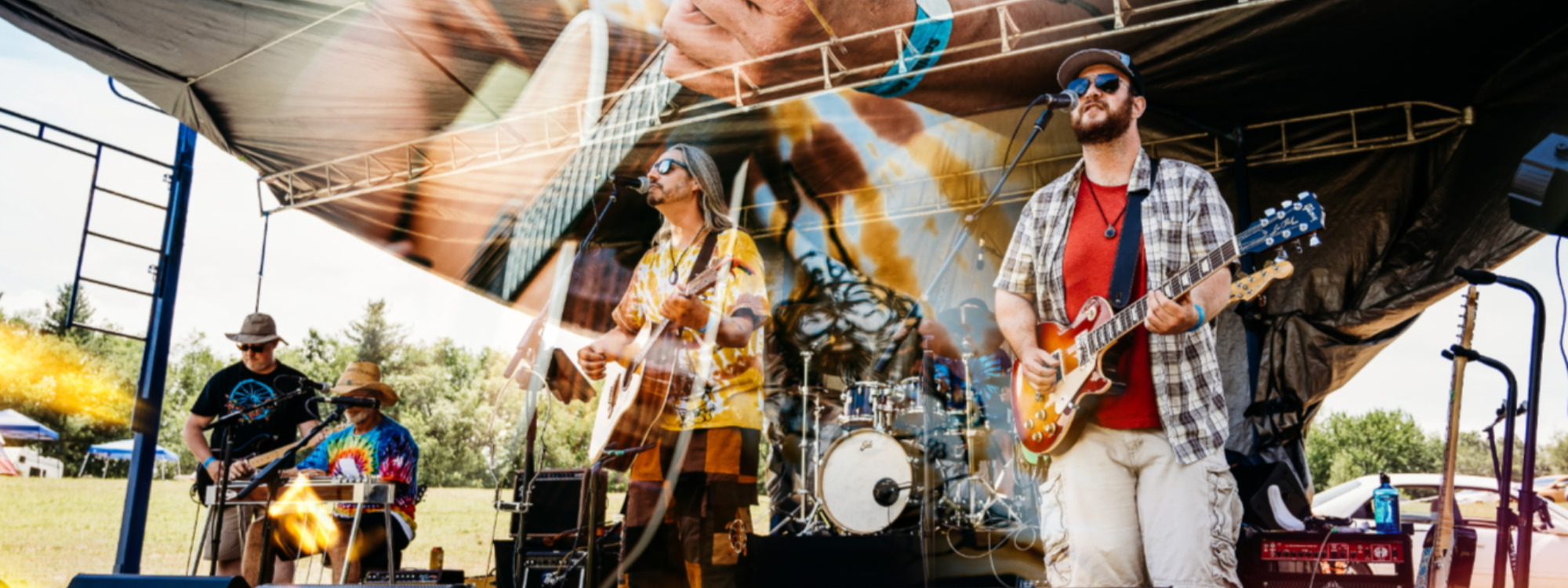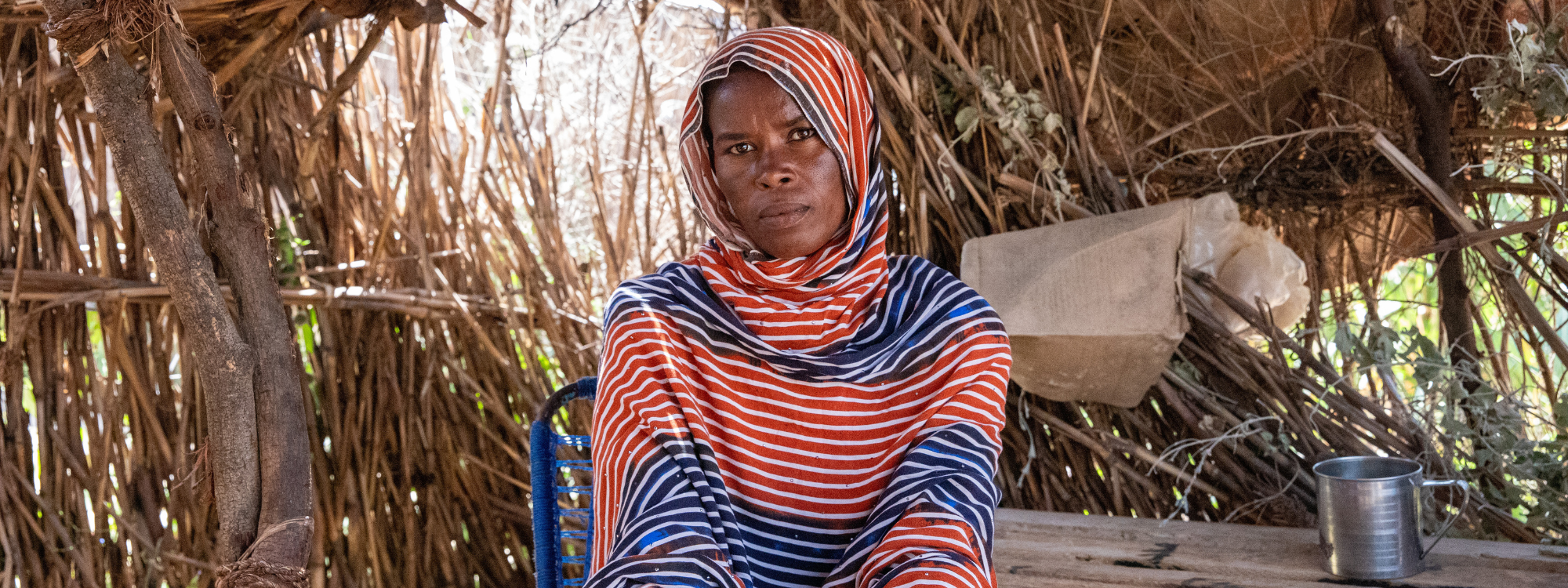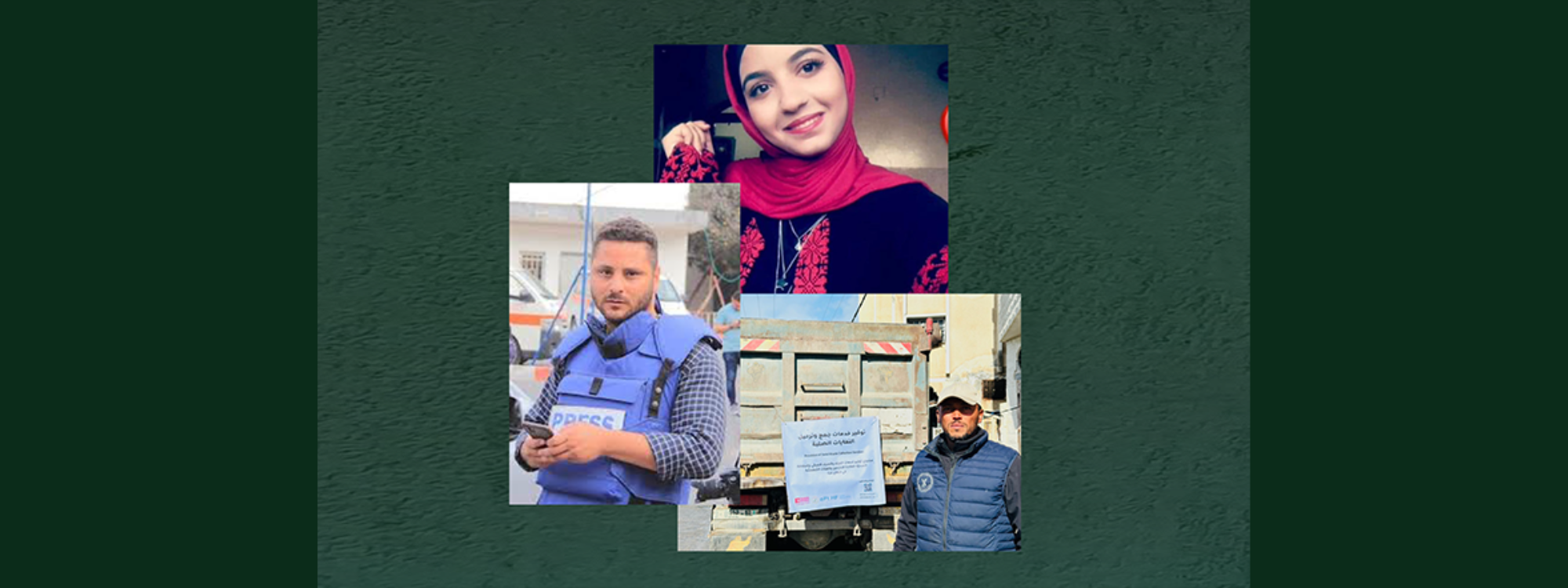
Blog
Finding Shelter Again: Stories of Strength on World Refugee Day
117.3 million people were forcibly displaced in 2024. Behind each number is a life, a family, a story. What does it mean to lose and find shelter?
What does it mean to lose and find shelter?
Every year on June 20, the world marks World Refugee Day, a moment to honor the strength, resilience, and rights of millions who have been forcibly displaced from their homes. At ShelterBox, we believe that shelter is not just a cover over your head – it’s a human right. It’s safety, dignity, and the foundation for rebuilding after unimaginable loss.
These are the real stories of people who, despite being forced from their homes by conflict, are rebuilding their lives – with courage, hope, and a little support from ShelterBox.

Joseph on his farm plot in Cameroon.
Joseph’s Story: Reclaiming his passion for farming in Minawao Refugee Camp
51-year-old Joseph is originally from a family of farmers in Nigeria. He now lives in Minawao camp in Cameroon, home to almost 60,000 refugees. Joseph was forced to flee his home with his children when his village was viciously attacked by Boko Haram fighters. He sadly lost his wife during these attacks.
My parents were farmers, and they taught us how to farm as children… This is how I lived until I started building my own family, doing the same thing with my children.”
He once sold his produce in major cities in Nigeria, like Abuja and Kano. But everything changed after the attack.
“They put fire all over the village and killed so many people. By the grace of God, I could escape with my family. But unfortunately, my wife was shot dead.”
Joseph and his children eventually arrived in Minawao, where they received a ShelterBox tent and essential household items. With nothing to do and nowhere to go, Joseph began growing maize near his shelter.
“I started growing maize near to my tent. I didn’t have that much space so I could only plant enough for one dish. But I was happy doing it.”
Eventually, he saved up enough to rent land within the camp.
A neighbor told me about people renting farmland… This is how I started my passion again.”

Moh lived in a ShelterBox tent in Gaza as a child after being displaced from his family home. This photo is taken in Evanston, Illinois, where he lives now.
Moh’s story: growing up in Gaza, a lost home, and the power of a tent
Born in Riyadh, Saudi Arabia, Mohammed Eid (Moh) spent much of his early childhood dreaming of home – Gaza. His father was obsessed with the idea of returning home [to Gaza] to build his family a new house. He even designed a house model using Styrofoam. After almost 15 years in Saudi Arabia, Moh’s father had saved enough for a house, so Moh’s family returned to Gaza when he was six. They built their first house near their extended family, close to Rafah Camp.
It was small and cozy, with only two bedrooms, but we loved it so much. We would gather, drink tea, and eat fruit… My mom would bake us a cake, which I loved to dunk in sweet tea.
A few years later, in 2000, the peace process fell apart, and the conflict erupted once again. Moh’s backyard quickly turned into a military zone. Then came Operation Rainbow in 2004. The operation lasted for two horrifying weeks. Moh and his family stayed in one of the local schools that was turned into a refugee shelter. It was so crowded that they ended up staying in a tent outside, exposed to the open air.
Gaza lacked any sort of accommodation infrastructure or temporary housing facilities, so when a crisis of such scale took place, the streets became shelters. Their house was lost, and the family found themselves living in a makeshift shelter.

Moh and his younger brother, Ayman. Mo is showing his High School project; a Styrofoam house. The photo is taken in 2005, a year after losing home in Operation Rainbow.
“We stayed in a tent outside, exposed to the open air… Under such circumstances, a small asset like a simple camping tent could become extremely valuable. Not just in a general sense, but in an actual sense, a tent could cost a fortune during such crises.”
In 2014, during one of the many rounds of conflict, Moh’s neighborhood was heavily bombarded again. The intensity of the airstrikes forced Moh to leave his home back then, and his family never returned to it.
“It all started again; we lost everything and sought refuge in the local school turned into a shelter. That’s when we stayed in a tent provided by ShelterBox. I wondered how far that tent must have traveled before reaching us. We were grateful for that tent.”
A ShelterBox tent gave his family critical privacy and safety.
“Privacy is culturally important in the Middle East… The worst thing that can happen to people is to deprive them of that. That’s exactly what destroying a house does; people lose dignity before they even lose their lives, and that’s the worst form of punishment…That tent offered almost everything we needed within the first 24 hours following displacement. Along with the tent came mattresses, blankets, a first aid kit, and a food package. Honestly, all we needed immediately was a place to sleep.”
Even during displacement, Moh’s family recreated their traditions – tea, baked bread, and warmth.
Despite the uncertainty and hardships, we found peace within our tent, in family, food, and tradition.
Now living in the US after being awarded a prestigious Rotary Peace Fellowship, Moh works in peace and development and is a member of Evanston Lighthouse Rotary Club. He’s never forgotten the shelter that helped preserve his family’s dignity.
ShelterBox has been working in Gaza since the conflict escalated after October 7th. Read about our response.

Nafissa and her children in their shelter in Chad.
Nafissa in Sudan: Finding Freedom in Chad
Nafissa fled the war in Sudan and found refuge in Chad. She was among those who received a durable ShelterBox shelter, offering not just a roof but security.
“Before the crisis in Sudan, we lived in peace at home. With the crisis, we fled, leaving some of our loved ones dead or missing. We are the survivors, those who fled the war to find refuge in Chad.”
Yet life is incredibly hard in displacement camps in Chad, with a lack of safety, looting, and unstable shelters on the rise.
“Before [ShelterBox semi-durable shelters were constructed], we couldn’t leave our home because thieves could come at any time. Now I am reassured. I can go out and go to events far from here, like funerals and weddings.”

Nafissa in front of her shelter.
Her shelter protected her from termites, floods, and fear, restoring a sense of independence.

Vladyslav and Vlada in Moldova.
Vladyslav and Vlada: Hope Across the Border from Ukraine to Moldova
Millions of people have been displaced by the conflict in Ukraine. Around five million of them now live as refugees across Europe, fleeing to neighboring countries like Moldova, Poland, and Romania.
Vladyslav and Vladsylava are one of thousands of couples who have fled to Moldova where ShelterBox has worked to support people displaced by the conflict. In April 2022, they received ShelterBox cash assistance to help with the financial burden of being displaced.
Before the war, “we lived as normal people. We walked out to the park and other things: home, work, studying. Everything was calm and quiet. We enjoyed living there.”
Life was good before the war. Then the bombing started.
“It became, of course, worse, so we had to leave our own home and move to Moldova to find a way out.”
Within two hours, they packed everything and left.
“We stayed one night at the border. It seemed like everyone decided to come to Moldova.”
They received ShelterBox cash assistance, which they used to buy essentials.
“We help around the house with the chickens and the vegetable garden… Our hope is very small. But we hope everything will be fine. Our future plans are to go back to Ukraine. We hope that everything will be fine, people will stop dying, and that God will protect everyone.”
When asked to describe home, Vladysalv noted:
Well, home means family to me. Home is where it is warm and good and you feel safe.
Why shelter is important
Shelter is often the first step in rebuilding lives after displacement. Whether it’s a tent in Gaza that restores dignity, a farming patch in Cameroon that brings back purpose, a durable shelter in Chad that offers freedom, or cash in Moldova that helps displaced young people buy food.
ShelterBox delivers more than aid – we support people find a piece of “home” again. As displacement continues to rise, with 117.3 million people forced from their homes in 2024 alone, the scale of the crisis can feel overwhelming. But behind every statistic is a person with a story, resilience, and hope.
Every action, no matter how small, can make a difference. Because in reality, displacement can affect anyone. Refugees are not just numbers – they are families, individuals, and communities seeking safety. Together, we can stand in solidarity and support people who have lost so much.



